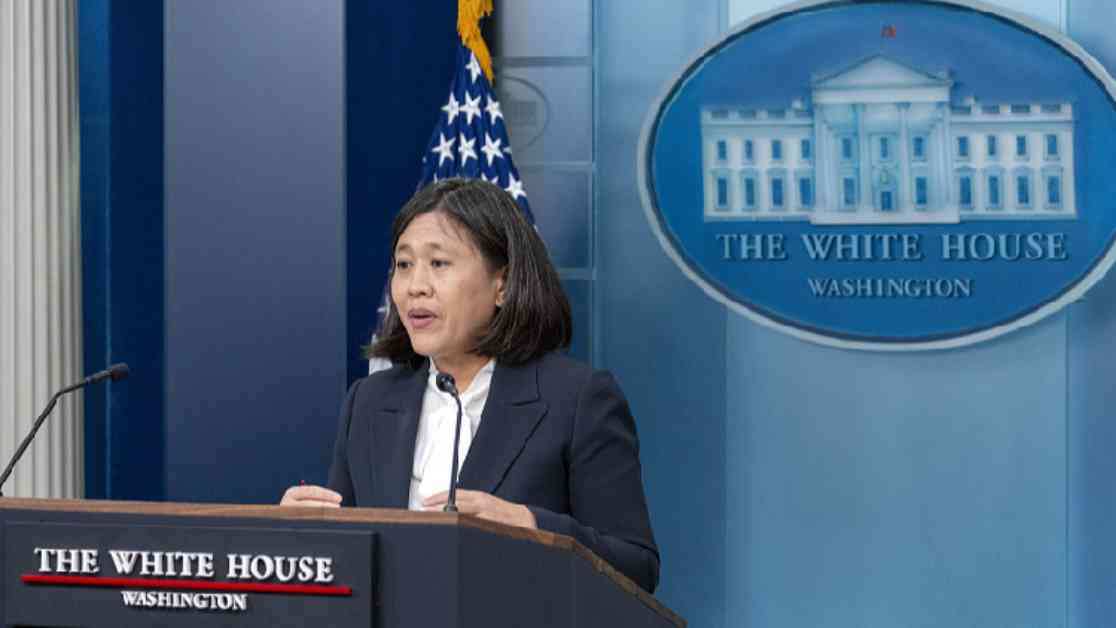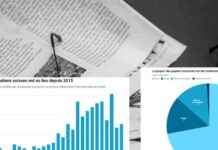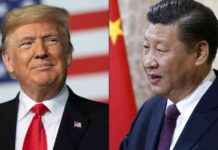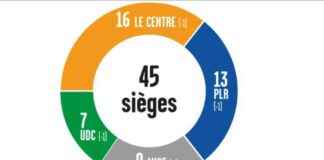Concerns Mount Over Potential Tariffs Against China: Perspectives from U.S. Economists and Trade Groups
As the Office of the U.S. Trade Representative (USTR) gears up to make a final determination on its proposed adjustments to the actions taken against China under Section 301, a wave of apprehension has swept through U.S. economists, trade groups, and international organizations. There is a growing consensus that the implementation of additional tariffs could have detrimental effects on U.S. companies and consumers.
U.S. Trade Representative Katherine Tai recently announced that President Joe Biden has instructed her to “take further action” regarding China tariffs following the release of a statutory four-year review of Section 301 tariffs. The proposed modifications entail raising tariffs on key sectors such as batteries, electric vehicles, semiconductors, steel, and aluminum products.
In a bid to gather public input, the USTR issued a Federal Register notice in late May outlining the proposed tariff modifications under Section 301 and the machinery exclusion process. The agency is currently reviewing all comments received and anticipates issuing its final determination in August.
The U.S.-China Business Council (USCBC), representing over 270 American companies engaged in business with China, expressed disappointment with the outcome of the Section 301 review. USCBC President Craig Allen lamented the decision to maintain existing tariffs without any reductions and impose additional tariffs, citing the adverse impact on American companies’ competitiveness both domestically and internationally. He highlighted the potential job losses, increased prices for U.S. manufacturers, and consumers grappling with ongoing inflation.
Jeffrey Sachs, an economics professor and director of the Center for Sustainable Development at Columbia University, criticized the new tariffs for violating America’s World Trade Organization commitments, arguing that they would harm consumers and escalate geopolitical tensions. Similarly, William Alan Reinsch, Scholl Chair in International Business at the Center for Strategic and International Studies, emphasized the adverse implications of the tariffs on the climate transition. Reinsch noted that the tariffs would inflate prices of essential green technology components sourced from China, impeding the U.S.’s progress towards meeting its climate obligations.
Reflecting on the political motivations behind the tariff decisions, Reinsch underscored the administration’s strategy to preempt criticism from former President Donald Trump on trade policies. Gary Clyde Hufbauer, a nonresident senior fellow at the Peterson Institute for International Economics, echoed this sentiment, suggesting that minimal changes in the Section 301 tariff rates were likely in response to political considerations.
The International Monetary Fund (IMF) also weighed in on the escalating trade restrictions between the U.S. and China, cautioning against the detrimental impact on both economies and the global trade system. The IMF underscored the counterproductive nature of tariffs, nontariff barriers, and domestic content provisions, warning that such measures could jeopardize trade and investment flows, fragment global supply chains, and provoke retaliatory actions from trading partners.
Ken Montgomery, executive director of the Technology Trade Regulation Alliance (TTRA), denounced the efficacy of the Section 301 tariffs in addressing trade issues between the U.S. and China, advocating for bilateral policy discussions instead. Montgomery highlighted the potential inflationary effects on technology product prices and the diminished competitiveness of U.S. businesses vis-à-vis foreign suppliers.
In a poignant illustration of the tariff impact, Thomas Rosensweet, president at Newport Metals, LLC, emphasized the challenges faced by his company in sourcing magnesium anodes from China due to the significant global supply concentration in the country. The imposition of tariffs on Chinese magnesium translated into additional costs for U.S. users, reflecting the intricate web of consequences stemming from trade policies.
As the debate surrounding the implications of tariffs on China intensifies, it is imperative for policymakers to consider the wide-ranging ramifications on businesses, consumers, and global economic dynamics. The delicate balance between safeguarding domestic interests and fostering international trade relations remains a pressing challenge that necessitates thoughtful deliberation and strategic decision-making.
Implications of Tariffs on U.S. Economy
The potential escalation of tariffs against China has sparked concerns among U.S. economists and trade groups regarding its impact on the domestic economy. The imposition of additional tariffs could lead to higher prices for U.S. consumers, reduced competitiveness for American businesses, and potential job losses in key industries.
The proposed modifications under Section 301 targeting strategic sectors such as batteries, electric vehicles, semiconductors, steel, and aluminum products have raised apprehensions about the broader implications for the U.S. economy. Economists warn that the tariffs could disrupt supply chains, increase production costs, and hinder economic growth, particularly in sectors heavily reliant on imports from China.
The U.S.-China Business Council (USCBC) has been vocal in expressing its disappointment with the outcome of the Section 301 review, citing the adverse impact on American companies’ ability to compete in the global market. USCBC President Craig Allen underscored the challenges posed by the existing tariffs and the prospect of additional levies, highlighting the potential repercussions on job creation, consumer prices, and inflation rates.
Political Considerations and Trade Policy
The decision-making process behind the implementation of tariffs against China has been subject to scrutiny, with experts pointing to political motivations shaping trade policy. Analysts suggest that the administration’s strategy to pre-empt criticism from former President Donald Trump on trade issues has influenced the trajectory of tariff decisions.
William Alan Reinsch, Scholl Chair in International Business at the Center for Strategic and International Studies, emphasized the political dynamics at play in the tariff deliberations, noting the administration’s efforts to project a tough stance on trade with China. Reinsch highlighted the ramifications of these decisions on climate goals, underscoring the need for a balanced approach that considers both economic and environmental objectives.
Gary Clyde Hufbauer, a seasoned economist and former U.S. Treasury official, echoed the sentiment that political considerations were a driving force behind the tariff decisions. Hufbauer suggested that the reluctance to make substantial changes to the Section 301 tariff rates was influenced by the desire to avoid accusations of being ‘soft on China,’ particularly in the context of heightened political scrutiny.
Global Implications of Trade Restrictions
The intensification of trade restrictions between the U.S. and China has broader implications for the global economy, raising concerns about the impact on trade relations, investment flows, and economic stability. The International Monetary Fund (IMF) has cautioned against the proliferation of tariffs, nontariff barriers, and domestic content provisions, warning of the potential risks to the multilateral trading system.
IMF staff highlighted the adverse consequences of protectionist measures on U.S. growth, productivity, and labor market outcomes, noting that the costs are largely borne by American consumers and firms. The IMF’s assessment underscores the need for a collaborative approach to trade policy that fosters economic integration, supports global supply chains, and promotes sustainable economic development.
In conclusion, the ongoing debate surrounding the imposition of tariffs against China underscores the intricate interplay between domestic interests, international trade relations, and geopolitical considerations. As policymakers navigate the complexities of trade policy, it is crucial to strike a balance between protecting domestic industries and fostering a conducive environment for global economic cooperation and growth. The repercussions of tariff decisions extend far beyond national borders, underscoring the interconnected nature of the global economy and the imperative of thoughtful, evidence-based policy formulation.

















